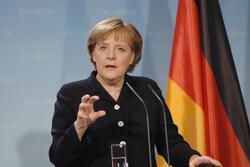Pop(e)ular
Religious leaders aren’t normally considered cool by teenagers, but Pope Francis is most definitely an exception. As a teenager myself, I can say that the Catholic Church was not at all on my radar until he started making waves. I was sitting in math class a couple of months ago during the Pope’s visit to the United States. My math teacher lives near DC, so he was telling us that he was going to be staying in Maryland for a few days because the traffic in DC would be so bad. “I’m obsessed with the Pope,” my friend said from behind me. We all turned to look at her and someone asked, “What? Why? Since when?” “Oh this is a relatively new thing,” she explained. “He is just so cool!” “It’s true,” someone else chimed in from across the room. “I really like how he’s progressive on gay marriage and climate change,” my friend added. “I love how he blew off his lunch with Congress to go eat with people experiencing homelessness!” I say. We spent the rest of class period discussing all the things we like about the Pope.
A few weeks later I was sitting in a shiur (lesson on a Jewish topic) about interfaith dialogue and the Pope came up. Again, everyone started talking about their obsession with him. “Did you see the video of him hanging out with the baby dressed like the Pope?” someone asked. “Did you know that he used to take public transportation?” said someone else. The teacher pauses our discussion. “Listen,” she begins. “I love Pope Francis. I love what he is doing and wish we had more religious leaders like him. But has it ever occurred to you girls that our obsession with the leader of a different religion is a little bit strange?” This struck me and I started wondering why my Jewish friends and I felt so positively towards the Pope.
The Pope is really popular in general (he ranked second most admired man in America) and most people seem to agree that this has to do with how modern he is. The Pope acknowledges that we live in 2015 and that religion has to adapt a little. He talks about how science and the Church can both be right and he is the first Pope to begin to accept the LGBTQ+ community, which is a huge deal. He also deeply cares about people. In September he asked every parish and religious community to host a refugee family, and the Vatican is currently hosting two families. He cares about ending inequality and poverty. He speaks out on social and political issues in a way that points people toward moral and ethical values, and reminds them of what is really at stake. He is making religion accessible, and instead of excluding people who don’t exactly fit in, he invites everyone to sit at his table. This inclusivity is something that Judaism, specifically its more traditional sects, could perhaps benefit from.
I find that my 21st century liberal feminist values often conflict with my 2000 year old religious values. But the minute I start throwing out aspects of Judaism I don’t like because I believe they were meant “just for their time,” I run the risk of eliminating the valuable things too. I really struggle with the stand my religious texts takes on LGBTQ+ and women’s rights. Despite the fact that I know and say that separate is not equal I sit behind the mechitza (barrier that separates men and women during prayer in Orthodox synagogues) every Saturday. These are issues that the more right Orthodox communities don’t talk about so much. I think that dialogue about inclusivity and marginalized groups of people is critical to change. But the Pope does a great job of balancing religious and moral value systems, and I would love to try and apply his outlook to Judaism.
At the end of the day religion is about morality, community, and caring for each other. It saddens me when individuals do and say terrible things in the name of religion. When Jews exclude and marginalize the LGBTQ+ community, I think that goes directly against our religious values. The Hebrew bible famously says, “you shall love your neighbor as yourself” (Leviticus chapter 19 verse 18). Although it is often incredibly difficult to reconcile past values with our lives today, we need to remember what is important. I would argue that accepting other people and engaging in dialogue with them is more important than age-old prejudices ingrained in our religious texts. I love Judaism and love the tradition that I choose to let fill almost every aspect of my life. For me Judaism is a moral compass and it teaches me how to view the world and interact with others as a sensitive and kind human being. I really admire how the Pope reconciles his ancient religion with modern values. I strive to find that balance and while I do it gives me hope that religious leaders as cool as the Pope exist.
This piece was written as part of JWA’s Rising Voices Fellowship.







